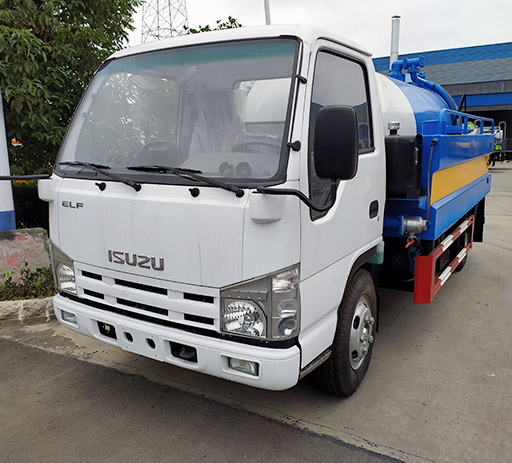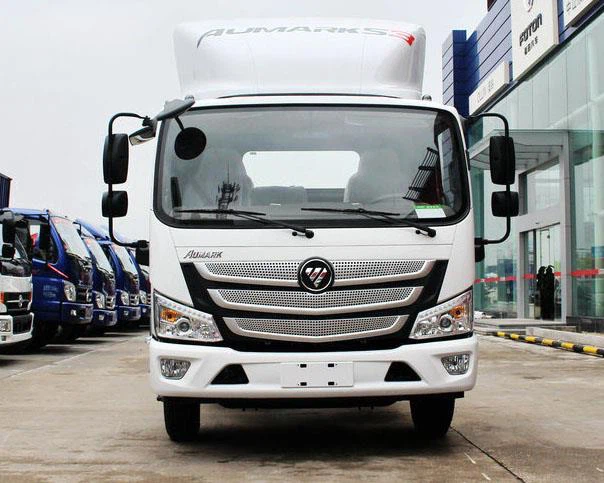Automated Side Loader Refuse Trucks: The Future of Waste Management

As cities grow and waste management becomes increasingly complex, the demand for efficient refuse collection solutions is at an all-time high. Among the forefront of these solutions are automated side loader refuse trucks, which are revolutionizing the way municipalities handle waste. This article will explore the technology behind these trucks, their benefits, practical applications, and more, providing a comprehensive overview of why they are essential in modern waste management.
Understanding Automated Side Loader Refuse Trucks
Automated side loader refuse trucks are specialized waste collection vehicles that employ sophisticated mechanisms to perform the waste collection process with minimal human intervention. These trucks are designed to collect refuse from the side, utilizing robotic arms that can grip and lift waste bins.
How Automated Side Loader Trucks Work
The operation of automated side loader trucks involves several critical components:
- Robotic Arm: This is the core mechanism that picks up the waste containers from the curbside.
- Sensors: Advanced sensors help the truck identify the location of waste bins and ensure accurate lifting.
- Operator Interface: Drivers can control the system from the cab of the truck using an intuitive interface.
- Waste Compartment: This is where the collected refuse is stored until it can be transported to a disposal facility.
Key Features of Automated Side Loader Trucks
| Feature | Description |
|---|---|
| Automation | Minimizes manual labor by using robotic systems for waste collection. |
| Efficiency | Increases the speed of refuse collection, reducing operational costs. |
| Safety | Reduces accidents and injuries associated with manual bin lifting. |
| Environmental Impact | Optimized collection routes contribute to lower emissions. |
Advantages of Automated Side Loader Refuse Trucks
Efficiency and Productivity
One of the most significant benefits of automated side loader trucks is their efficiency. These trucks can complete routes faster than traditional collection methods, allowing municipalities to service more areas within a shorter period. This increased productivity translates into operational cost savings, as fewer trucks and personnel are needed to collect waste.
Reduction in Labor Costs
With the automation of the collection process, municipalities can reduce labor costs significantly. Fewer personnel are needed on the ground, allowing cities to allocate resources to other essential services or reduce budget expenditures.
Improved Safety Standards
Automated side loader trucks contribute to improved workplace safety. By minimizing the need for manual lifting and reaching into bins, the likelihood of injuries for refuse collection workers is substantially decreased. This focus on safety is crucial in maintaining a healthy workforce.
Case Study: City of Austin, Texas
The City of Austin implemented automated side loader refuse trucks and experienced a 30% reduction in worker injuries in the first year alone. This improvement showcased the critical importance of safety in waste management operations.
Environmental Benefits
Automated side loader trucks can also contribute positively to the environment. These trucks are often designed to optimize collection routes, reducing fuel consumption and greenhouse gas emissions. Additionally, many models are now equipped with technologies that are environmentally friendly, such as hybrid or electric engines.
Types of Automated Side Loader Refuse Trucks
Single-Arm Automated Side Loaders
Single-arm automated side loaders are equipped with just one arm that can extend and retract to pick up bins. These trucks are efficient and commonly used in urban settings where space is limited.
Dual-Arm Automated Side Loaders
Dual-arm automated side loaders feature two robotic arms, allowing for simultaneous collection from two bins. This feature greatly enhances collection speed and efficiency, making them ideal for high-density neighborhoods.
Specialized Automated Trucks
Some automated side loader refuse trucks are customized for specific waste types, such as recycling or organic waste. These specialized trucks often have additional compartments for better segregation of materials.
How to Choose the Right Automated Side Loader Refuse Truck
Consider Your Collection Needs
Before choosing an automated side loader refuse truck, it’s essential to evaluate the specific collection needs of your municipality. Consider factors like the volume of waste, type of waste, and the geography of your service area.
Evaluate Technology and Features
Compare different models based on their technology and features. Some trucks may offer more advanced sensors, better lifting capacities, or enhanced fuel efficiency. Choose a model that aligns with the operational goals of your refuse collection services.
Cost Analysis

Conduct a thorough cost analysis, including initial purchase price, maintenance costs, fuel consumption, and potential savings in labor. Ensure that the long-term benefits outweigh the upfront investment.
Maintenance of Automated Side Loader Refuse Trucks
Regular Inspections
Automated side loader trucks require regular inspections to ensure that all components, especially the robotic arm and sensors, are functioning correctly. Scheduling routine maintenance can prevent unexpected breakdowns.
Training for Operators
Proper training for truck operators is crucial for maximizing efficiency and safety. Operators should be familiar with the technology and understand how to handle potential issues that may arise during collection.
Practical Examples of Automated Side Loader Refuse Trucks in Action

Case Study: The City of San Diego
The City of San Diego successfully integrated automated side loaders into their waste management system, resulting in a 25% increase in collection efficiency. Residents reported high satisfaction levels with the automated pickups, leading to fewer missed collections.
Innovative Solutions in Waste Management
Some companies have developed hybrid systems that combine traditional manual collection with automation. These innovative trucks can switch between manual control and automated lifting based on the terrain or specific collection needs.
Challenges Faced by Municipalities
High Initial Investment
The initial costs of purchasing automated refuse trucks can be significantly higher than traditional trucks. However, the long-term savings can justify this upfront investment when properly analyzed.
Operational Adaptation
Municipalities may face challenges in adapting to new technology. Training personnel and reworking collection routes to accommodate automated systems can require time and resources.
Future Trends in Automated Side Loader Refuse Trucks
Smart Truck Technology
The future of automated side loader refuse trucks lies in smart technology. Trucks equipped with AI and machine learning capabilities can optimize routes in real time, monitor engine performance, and even communicate with the city’s waste management system for seamless operations.
Integration with IoT
Integrating Internet of Things (IoT) technology can lead to smarter waste management. Trucks can collect data on waste volume and collection frequency, aiding municipalities in planning and resource allocation.
Frequently Asked Questions (FAQ)
1. What is an automated side loader refuse truck?
An automated side loader refuse truck is a waste collection vehicle that utilizes robotic arms and advanced technology to automate the process of collecting refuse from curbside bins.

2. How do automated side loader trucks improve safety?
These trucks minimize manual lifting and bin handling, which reduces the risk of injury for refuse workers. Enhanced safety protocols result in fewer workplace accidents.
3. Are automated side loader refuse trucks cost-effective?
While they require a higher initial investment, the long-term savings from reduced labor costs, improved efficiency, and optimized routes make them cost-effective solutions for municipalities.
4. Can automated side loader trucks handle all types of waste?
Many automated side loader trucks are designed for standard refuse, but specialized models can be equipped to handle recyclables or organic waste. It’s essential to choose the right truck based on your specific waste management needs.
5. What maintenance do automated side loader trucks require?
Regular inspections of the robotic arms, sensors, and other mechanical components are necessary. Training for operators on proper handling and maintenance procedures is also crucial.
6. What are the future trends for refuse collection trucks?
The integration of smart technology, AI, and IoT will likely shape the future of automated side loader refuse trucks, leading to even more efficient and adaptive waste management systems.
